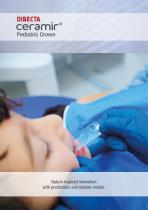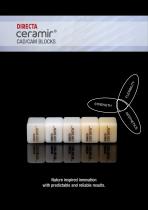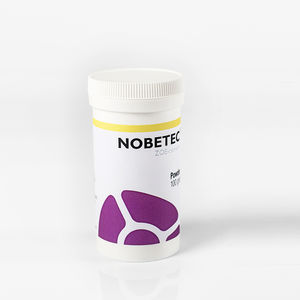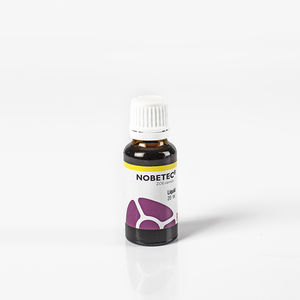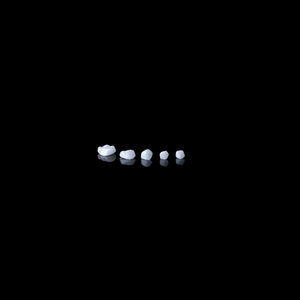
Hybrid dental material Ceramir®lithium disilicateCAD/CAMtranslucent

Add to favorites
Compare this product
Characteristics
- Type
- lithium disilicate, hybrid
- Applications
- CAD/CAM
- Color
- translucent
- Size
12 mm, 14 mm, 18 mm
(0 in, 1 in, 1 in)- Flexural strength
200 MPa, 320 MPa
Description
Strong and flexible with high aesthetic appearance
Ceramir CAD/CAM BLOCKS are a new type of CAD/CAM material. They are manufactured using advanced patented laser sintering technology, creating a single glass phase material embedded in a hybrid matrix. This results in that Ceramir CAD/CAM BLOCKS have the strength of particle infiltrated ceramics (lithium disilicate), the aesthetics comparable of feldspathic glass-ceramics, but without the brittleness of pure ceramics, and with the flexibility similar to dentin (20 GPa), which reduces tension during masticatory load and creates a shock-absorbing effect, decreasing occlusal stress.
Ceramir CAD/CAM BLOCKS have a natural translucency due to their homogeneous glass-like structure. They reflect light and, after a short polishing, have a high gloss surface that resembles natural teeth. Ceramir CAD / CAM BLOCKS offer a unique combination of strength, flexibility and aesthetics and can be used for a wide range of indications, including crowns, inlays, onlays and veneers.
The advantage with Ceramir CAD/CAM BLOCKs is that it can be milled to very thin margins while maintaining a high edge stability. A full crown will need a thickness of 1,5 mm in areas with cusps and occlusal contacts, whilst veneers can be milled down to as little as 0,3-0,5 mm with remained smooth edge providing as little gap formation as possible.
Due to the composition of the material, restorations made with Ceramir CAD/CAM BLOCKS can be easily repaired with composite in the mouth, if necessary.
Ceramir CAD/CAM BLOCKS have unique properties that allow shorter milling times compared to other CAD/CAM blocks.
VIDEO
Catalogs
Ceramir Pediatric Crown
8 Pages
CeramirCADCAMBLOCKS
8 Pages
Related Searches
- Dental material
- Restoration dental material
- Dental CAD/CAM material
- Translucent dental material
- Opaque dental material
- Liquid dental material
- Temporary dental material
- Endodontic dental material
- Gel dental material
- Radio-opaque dental material
- Buccal tissue matrix
- Root canal filling dental material
- Hybrid dental material
- Tray for dental instruments
- Lithium disilicate dental material
- Calcium hydroxide dental material
- Dental crown
- Molar dental crown
- Ceramic dental crown
- Polycarbonate dental crown
*Prices are pre-tax. They exclude delivery charges and customs duties and do not include additional charges for installation or activation options. Prices are indicative only and may vary by country, with changes to the cost of raw materials and exchange rates.


